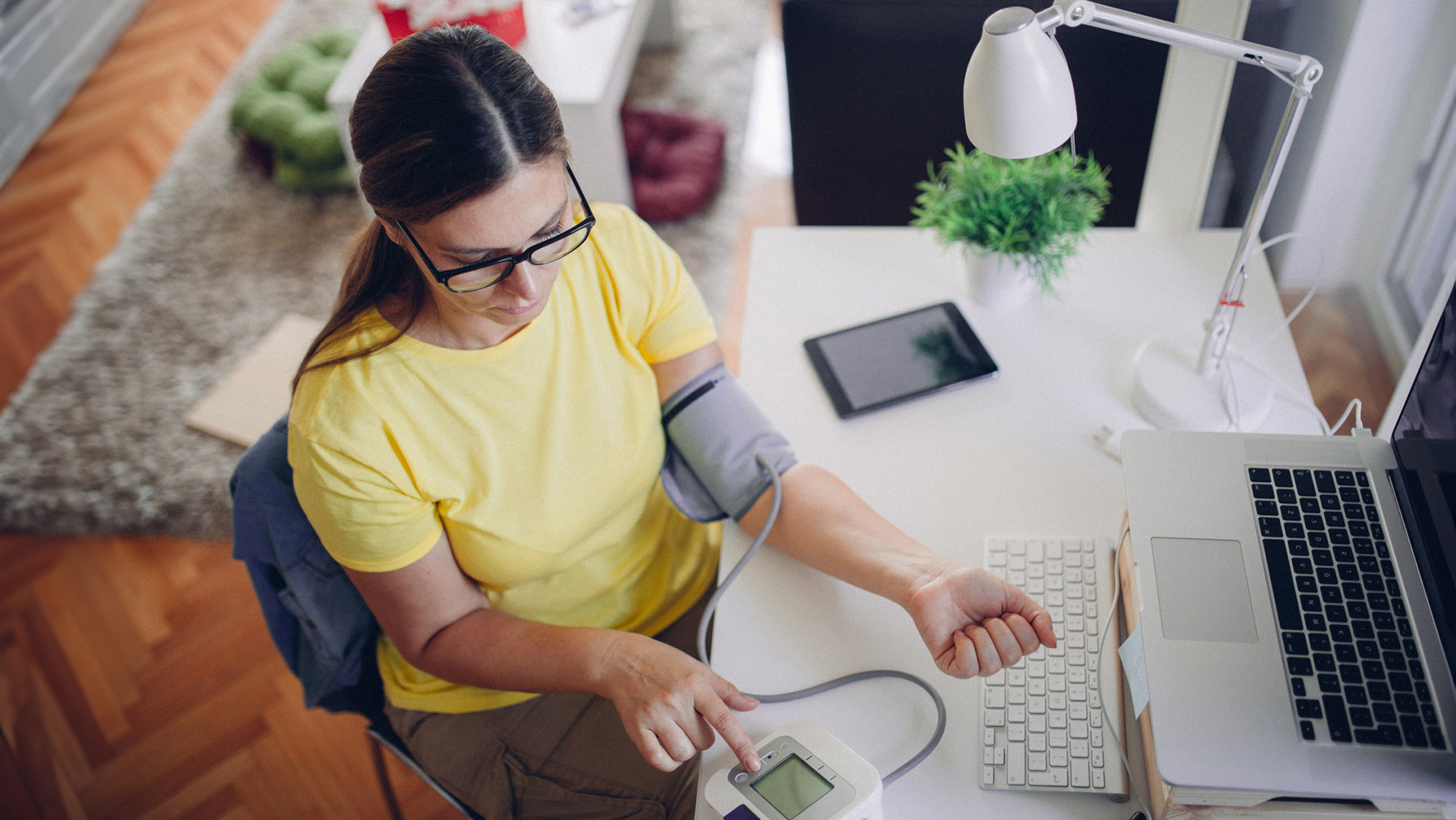
A new literature review comparing at-home blood pressure self-monitoring with traditional clinic-based monitoring reveals a significant finding: nearly 60% of the examined studies conclude that at-home self-monitoring is more cost-effective in the long term.
This systematic review, written by Texas A&M University graduate student Michelle Hayek in conjunction with Texas A&M faculty, assessed the cost-effectiveness of at-home self-monitoring interventions. Faculty collaborators were Dr. Theodoros Giannouchos, assistant professor in the Department of Health Policy & Organization, and advisors Dr. Mark Lawley, I. Andrew Rader III Professor of Industrial and Systems Engineering, and Dr. Hye-Chung Kum, professor in the Department of Health Policy and Management.
Hayek’s research focuses on evaluating the cost-effectiveness of health care technologies specifically aimed at improving the health outcomes of hypertensive patients. Considering the global prevalence of hypertension and its substantial health care costs, Hayek underscores the urgency to address the condition more effectively.
Hayek points out that while short-term assessments may show high upfront costs, the benefits and cost-effectiveness of these interventions become more evident in the long term. The study also emphasizes the critical role of at-home self-monitoring when combined with additional support or incorporated into team-based care. Studies comparing at-home self-monitoring versus automatic 24-hour continuous monitoring found the latter to be the most cost-effective method.
Dr. Giannouchos highlighted, "Patient experiences and preferences play a pivotal role in distinguishing between home-based care and monitoring systems versus traditional clinical-based care. These factors significantly influence patients' adherence to treatment regimens, impacting preventive measures and timely initiation of treatments. Therefore, when assessing the willingness to pay for such interventions, it's crucial to account for these aspects."

Hayek’s research suggests that prioritizing at-home self-monitoring, particularly automatic 24-hour continuous blood pressure monitoring for hypertensive patients, should be a focal point for clinicians, hospitals, health care systems and stakeholders.
There is also a potential benefit for patients in rural areas. At-home monitoring could drastically improve the quality of care for individuals facing challenges in accessing clinical facilities.
Hayek, who transitioned from mechanical engineering to health care economics, is driven by a desire to merge engineering and health care.
Hayek recently received a student seed fund award from the National Science Foundation (NSF) supporting research on the impact of COVID-19 on mental health visits, with a focus on exploring the role of telehealth in mitigating these challenges. This project exemplifies her adaptability and commitment to contributing to diverse healthcare fields.
Her philosophy captures the essence of her research: “Advancements in health care technologies should not only consider economic factors but, more importantly, aim to enhance patient experiences and outcomes.”